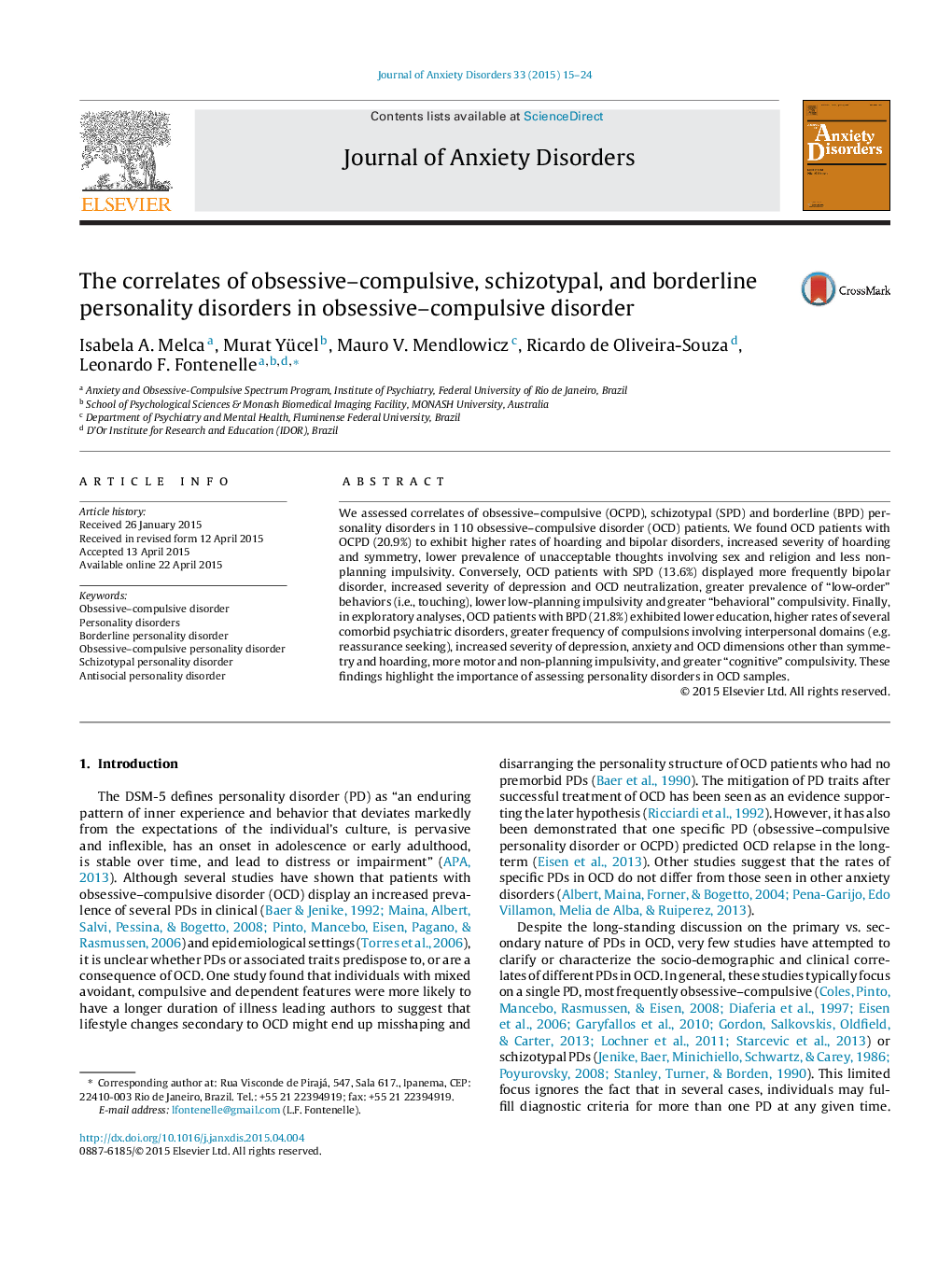| Article ID | Journal | Published Year | Pages | File Type |
|---|---|---|---|---|
| 909269 | Journal of Anxiety Disorders | 2015 | 10 Pages |
•Personality disorders (PDs) may affect the OCD phenotype.•Patients with OCD and comorbid PDs tend to be more severe.•The presence of PDs in OCD may have important therapeutic implications.
We assessed correlates of obsessive–compulsive (OCPD), schizotypal (SPD) and borderline (BPD) personality disorders in 110 obsessive–compulsive disorder (OCD) patients. We found OCD patients with OCPD (20.9%) to exhibit higher rates of hoarding and bipolar disorders, increased severity of hoarding and symmetry, lower prevalence of unacceptable thoughts involving sex and religion and less non-planning impulsivity. Conversely, OCD patients with SPD (13.6%) displayed more frequently bipolar disorder, increased severity of depression and OCD neutralization, greater prevalence of “low-order” behaviors (i.e., touching), lower low-planning impulsivity and greater “behavioral” compulsivity. Finally, in exploratory analyses, OCD patients with BPD (21.8%) exhibited lower education, higher rates of several comorbid psychiatric disorders, greater frequency of compulsions involving interpersonal domains (e.g. reassurance seeking), increased severity of depression, anxiety and OCD dimensions other than symmetry and hoarding, more motor and non-planning impulsivity, and greater “cognitive” compulsivity. These findings highlight the importance of assessing personality disorders in OCD samples.
